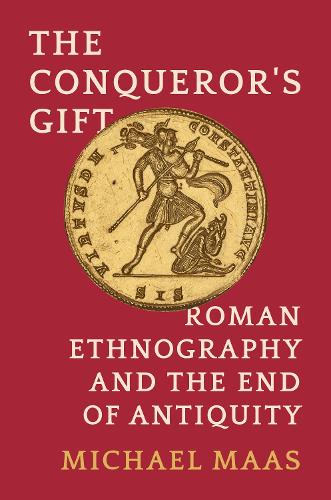
The Conqueror's Gift: Roman Ethnography and the End of Antiquity
(Hardback)
Publishing Details
The Conqueror's Gift: Roman Ethnography and the End of Antiquity
By (Author) Michael Maas
Princeton University Press
Princeton University Press
1st June 2025
United States
Classifications
Tertiary Education
Non Fiction
Social and cultural anthropology
937.09
Physical Properties
Hardback
456
Width 156mm, Height 235mm
Description
The essential role of ethnographic thought in the Roman empire and how it evolved in Late Antiquity
Ethnography is indispensable for every empire, as important as armies, tax-collectors, or ambassadors. It helps rulers articulate cultural differences, and it lets the inhabitants of the empire, especially those who guide its course, understand themselves in the midst of enemies, allies, and friends. In The Conquerors Gift, Michael Maas examines the ethnographic infrastructure of the Roman Empire and the transformation of Romes ethnographic vision during Late Antiquity. Drawing on a wide range of texts, Maas shows how the Romans ethnographic thought evolved as they attended to the business of ruling an empire on three continents.
Ethnography, the conquerors gift, gave Romans structured ways of finding a place for foreigners in the imperial worldview and helped justify imperial action affecting them. In Late Antiquity, Christianity revolutionized the imperial ethnographic infrastructure by altering old concepts and introducing credal models of community. The Bible became a source for organizing the Roman world. At the same time, many previously unseen collective identities emerged across Western Eurasia in reaction to the diminution of Roman power. These changes deeply affected the Empires ethnographic infrastructure and vision of the world. Maas argues that a major consequence of these developments was the beginning of a sectarian age, as individuals and political communities came to identify themselves primarily in terms of religion as well as ethnicity. As they adjusted to changing ethnographic realities, Romans understood their place among the peoples of the world in new ways. Willingly or not, we continue to be recipients of the conquerors gift today.
Author Bio
Michael R. Maas is the William Gaines Twyman Professor of History at Rice University. His most recent book, Empires and Exchanges in Eurasian Late Antiquity. Rome, China, Iran, and the Steppe, ca. 250750, edited with Nicola Di Cosmo, won a CHOICE Academic Book of the Year Award.
